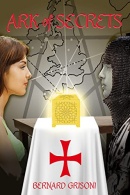<< Web Picks The history of gambling: from ancient times to online casinos
Submitted by Andy_B on Monday, 07 July 2025 Page Views: 5
Resources Gambling is as old as human civilization. People have been indulging in games of chance for thousands of years. Archaeologists have discovered that games were played and bets were placed as early as 4000 BC. Traces of the first forms of entertainment have been found, among other places, in the Pyramid of Cheops in Egypt. In ancient India, there was a belief that the world was created as a result of four dice rolls.
Gambling is as old as human civilization. People have been indulging in games of chance for thousands of years. Archaeologists have discovered that games were played and bets were placed as early as 4000 BC. Traces of the first forms of entertainment have been found, among other places, in the Pyramid of Cheops in Egypt. In ancient India, there was a belief that the world was created as a result of four dice rolls.Today, gambling looks completely different. Instead of ivory dice, we have digital online casinos available at our fingertips on our smartphones.
The first games of chance and betting in ancient times
Today, we know that gambling has been with us since the dawn of time. The first dice were discovered in Mesopotamia around 3000 BC. Similar finds have been discovered in Egyptian tombs. We also know that the game Senet was popular at that time. It was a board game for wealthy and important people. When playing the game, pharaohs and kings would bet their valuable possessions and slaves.Based on research by archaeologists and scientists, it can be concluded that gambling appeared in civilization around 3000 BC. More than 5000 years have passed since then, during which games of chance have developed and constantly evolved.
It is also worth noting that the first bets on sports and disciplines took place as early as 500 BC. During cockfights and games, people bet on the victory of horses and competitors. This is particularly reminiscent of today's system of betting on football and other popular activities.

Medieval dice, cards and games
Scientists have uncovered equally interesting traces of gambling and betting from the Middle Ages. Around the 14th century, the community gambled in taverns and courts. This pastime was reserved for the elite and important figures.The 15th century saw a rise in the popularity of card games. The movement and interest in this type of entertainment was so great that gambling became condemned. It was mainly the clergy who condemned all games of chance. They were considered a source of demoralisation and sin. In this way, attempts were made to limit the reach of gambling.
The bans were not respected by everyone, so people continued to play. Gambling brought people entertainment and excitement, but it often wasted lives. Both the commoners and the knights squandered their fortunes, which led to severe gambling bans, after which gambling had to go underground.
The Renaissance and the modern era
Gambling has been looked at in a new way in recent years. At that point, this kind of entertainment started showing up in hairdressers again. People from all walks of life started playing games of chance again, and they became so popular that they were finally made official. There were now specialised gambling places that provided a safe and classy setting for gambling. Some powers, like the Netherlands, made their own rules and exceptions for running gambling businesses. These were the first examples of government oversight in the industry.In the present day, the gambling world has changed a great deal with the rise of online sites. People have always played games of chance to have fun and win money. Now, though, players can get to their best games from anywhere. These days, a lot of online casinos offer bonuses like hidden jack no deposit bonus code that give players extra money or free spins to improve their game. People have always wanted a lucky edge, and these bonuses are just a new way to satisfy that need. They help bring in new players and keep the game interesting by combining the long history of gaming with the ease of modern technology.
It is also known that during the Renaissance, gambling became a common form of entertainment among both the wealthy bourgeoisie and the lower social classes. This is an interesting phenomenon, which is strikingly similar to today's standards of cash gaming.
Gambling flourished all over the world. For example, in what is now the United States, the first documented references to gambling date back to 1665. It was then that the first horse racing track was built on Long Island.
However, the gambling idyll did not last forever. In the 18th century, moral criticism of gambling grew stronger. In some regions, gambling was outlawed, while other countries built their power and wealth on its foundations. A perfect example of such a region is the Principality of Monaco. Gambling became established there as a business (gambling and casinos were legalised for tourists only), thanks to which it is still considered one of the richest and most exclusive places on earth.
Gambling in the 19th century and the popularity of one-armed bandits
The mid-19th century brought a real explosion of gambling fever. The gold rush (1850s) and the conquest of the Wild West made gambling an integral part of the culture of the time.The scenes familiar from Westerns are no exaggeration – poker, craps and roulette were played in the saloons of California and Nevada. The stakes were dizzying. Miners and gold prospectors could lose (or win) entire fortunes at the green table.
Unfortunately, the free-for-all attitude towards gambling led to a rise in fraud and crime. Numerous scams, fake cards and notorious cardsharps gave gambling a bad name. At the end of this period, the first slot machines began to appear, marking a turning point towards the automation of games in the years that followed.

The 20th century and the first slots
During this time, people's views on gaming changed in a big way. A lot more people started gaming for real money, and legal competition spread quickly. Authorities in a number of areas finally realised that complete bans on gaming only made the illegal market grow. Instead, many governments realised that the best way to deal with gambling was to regulate it and get money from it. As an example, Canada legalised gambling inside its limits as early as 1901, which many other countries would then do too.Europe also slowly changed how it felt about gaming. After World War II, many countries set up state lotteries and betting pools as legal ways to gamble. Number games and lotteries were monopolised by the government between the wars. This gave the government a steady source of income while they tried to keep gaming under control.
During this time, the first mechanical slot machines came out and became very famous. The first slot machines were made in the late 1800s and became popular in casinos and bars throughout the 1900s and early 2000s. They are now an important part of gaming culture. By the middle of the 1900s, these machines had changed from simple mechanical reels to electronic ones, which made them more popular with players.
Online casinos and virtual casinos in the 21st century
With the rise of online casinos and virtual casinos in the 21st century, the gaming business has changed a lot. As technology has improved and more people get online, players no longer have to go to real casinos to play their favourite games. Instead, they can use their computers, tablets, or phones to play whenever and wherever they want.Many types of games are available at online casinos, from simple slots and poker to live player games that are just as exciting as those in real casinos. Virtual casinos take this a step further by using immersive technologies like virtual reality (VR), which lets players enter a fully involved 3D casino from their own homes.
These new technologies have made gambling easier to get into and more handy, but they have also brought about new problems, such as making sure everyone plays fairly, reducing the risk of addiction, and keeping things safe. Even so, online and virtual casinos are becoming more and more famous, changing the way people gamble in the digital age. Please gamble responsibly.



 We would like to know more about this location. Please feel free to add a brief description and any relevant information in your own language.
We would like to know more about this location. Please feel free to add a brief description and any relevant information in your own language. Wir möchten mehr über diese Stätte erfahren. Bitte zögern Sie nicht, eine kurze Beschreibung und relevante Informationen in Deutsch hinzuzufügen.
Wir möchten mehr über diese Stätte erfahren. Bitte zögern Sie nicht, eine kurze Beschreibung und relevante Informationen in Deutsch hinzuzufügen. Nous aimerions en savoir encore un peu sur les lieux. S'il vous plaît n'hesitez pas à ajouter une courte description et tous les renseignements pertinents dans votre propre langue.
Nous aimerions en savoir encore un peu sur les lieux. S'il vous plaît n'hesitez pas à ajouter une courte description et tous les renseignements pertinents dans votre propre langue. Quisieramos informarnos un poco más de las lugares. No dude en añadir una breve descripción y otros datos relevantes en su propio idioma.
Quisieramos informarnos un poco más de las lugares. No dude en añadir una breve descripción y otros datos relevantes en su propio idioma.